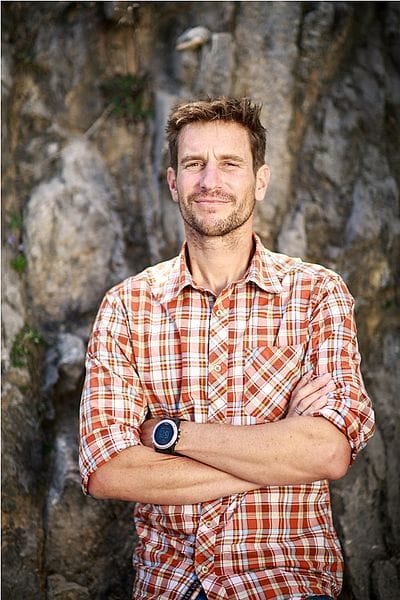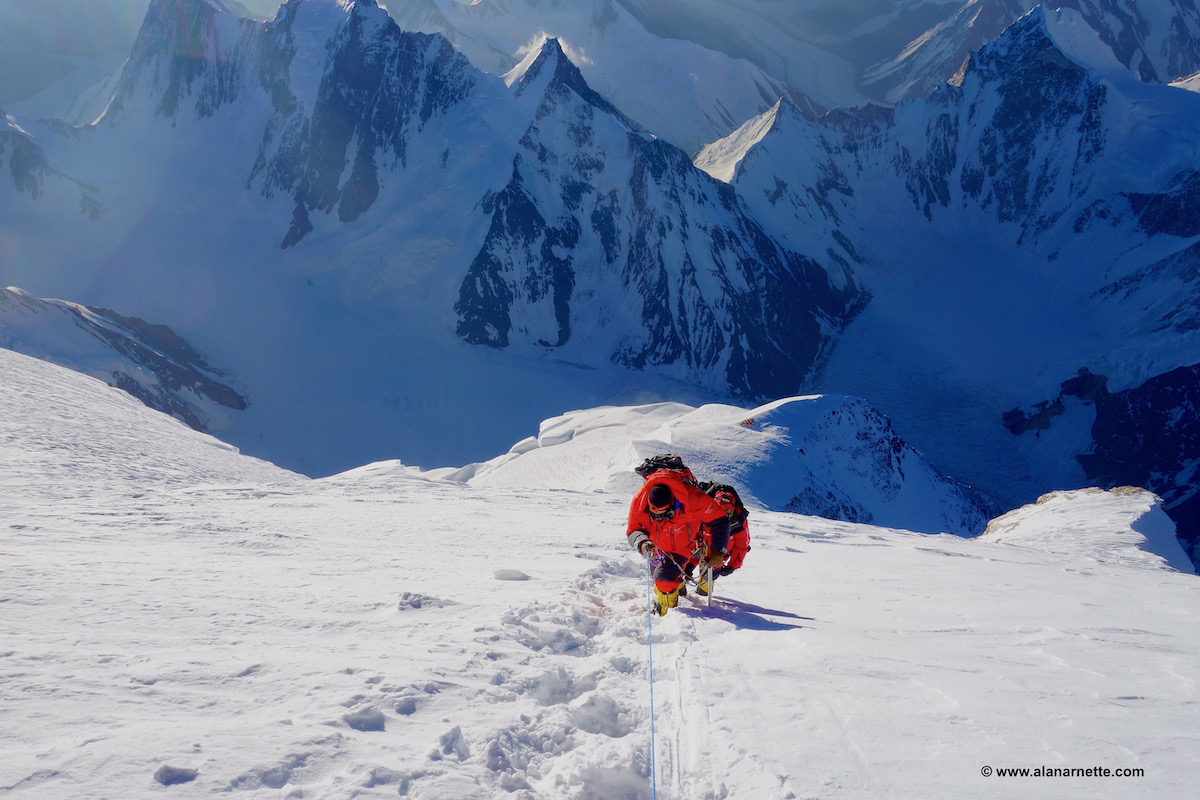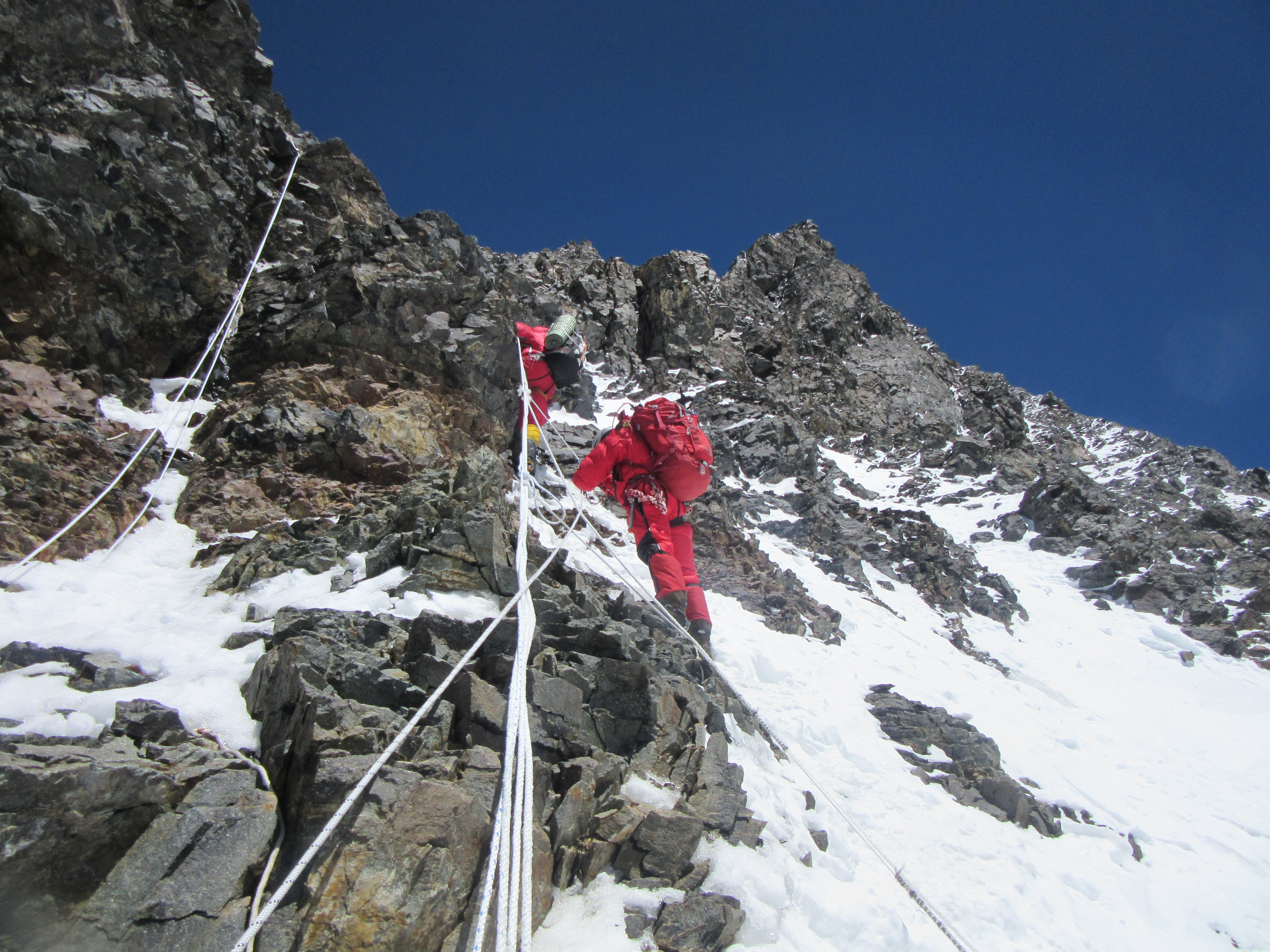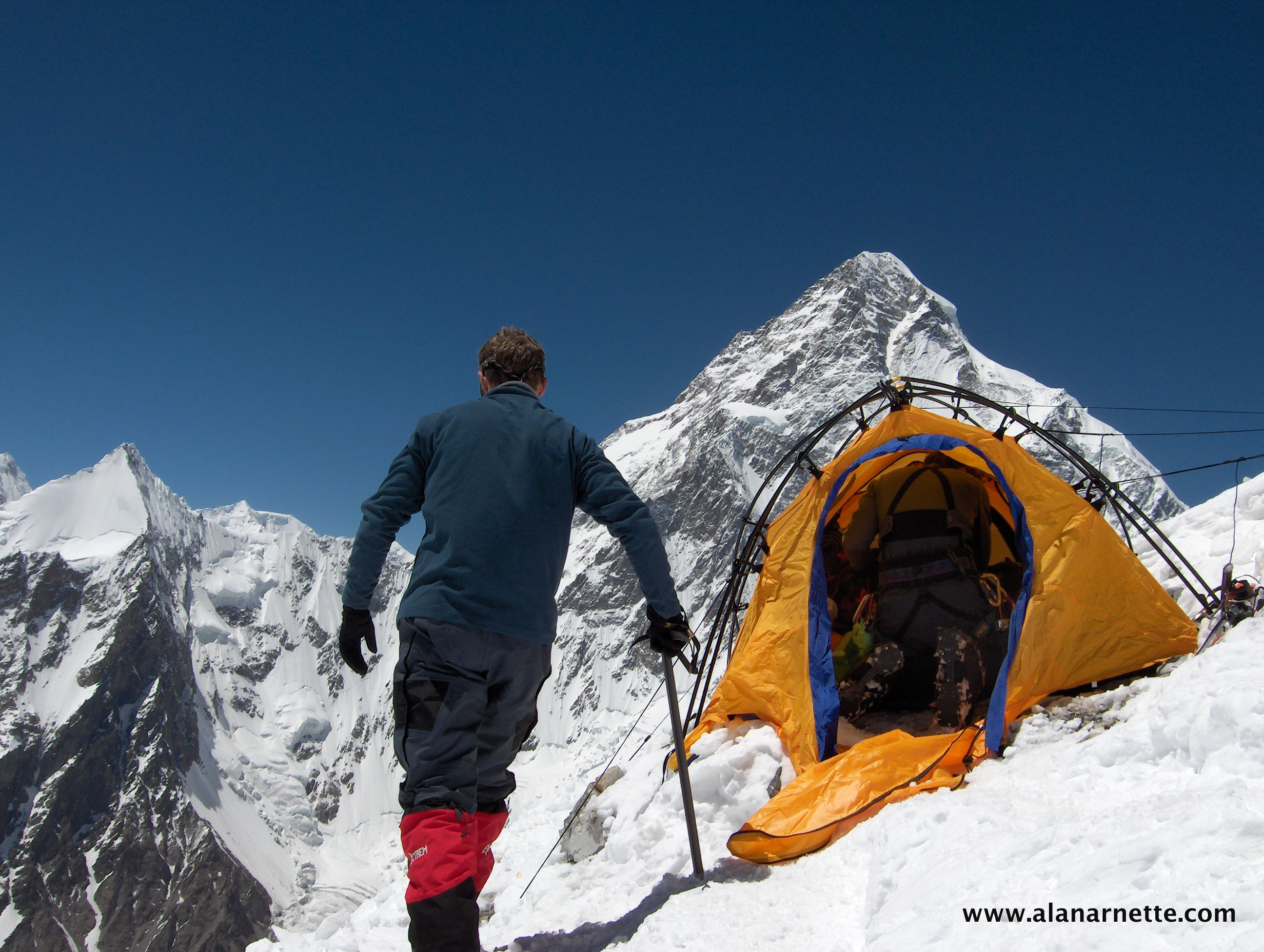Lukas Furtenbach, of Austrian-based Furtenbach Adventures made global headlines after he canceled his spring 2021 Everest expedition on the Nepal side last Friday. This follows the Chinese decision to cancel their only team on the Tibet side. Meanwhile, the officials responsible for the safety of guests climbing in Nepal deny climbers have COVID at Everest Base Camp. I interviewed Lukas from Everest Base Camp on his Tuesday morning, May 18, 2021. We covered a lot of other topics including:
- Planning knowing COVID was a possibility at base camp
- Furtenbach Adventure’s COVID protocol from vaccines (members and Sherpas) to time in Kathmandu, Everest Base Camp, and the High Camps
- Quarantining members and SHerpas
- COVID Testing
- Other teams at EBC
- Final events leading to the cancellation decision
- Getting members and support back home with the airport closed
- Donating Furtenbach’s oxygen and bottles to hospitals in Nepal
- Pakistan climbing plans (also canceled)
- What could have been done differently?
- Any regrets?
It’s a long interview, but worth your time if you are interested in the back story of Everest 2021 from his viewpoint.
Furtenbach told his entire team that he was canceling their expedition due to an “out of control situation at Everest Base Camp.” Furtenbach was one of the few operators who imposed stringent controls over his base camp to minimize the impact of COVID-19. He brought thousands of test kits, hired a team doctor, and limited any exposure with anyone outside his team, including his Sherpas, cooks, and other base camp staff. Yet, he still felt the risks were too high for his 20 customers, 4 mountain guides, and 27 Sherpas. His entire team had completed their acclimatization and were waiting for the winds to recede for their summit attempt.
Lukas sent me an email with his announcement:
We cancel our Everest expedition
(Everest BC, May 15, 2021) Furtenbach Adventures is the first expedition operator to cancel its current expedition on Mount Everest. The number of people infected with Covid in the base camp is increasing, for safety reasons the expedition is therefore ended immediately and the return journey started.
“I didn’t make the decision easy for myself. But to climb above base camp with these massively increasing corona numbers and risk the lives of our 20 customers, 4 mountain guides and 27 Sherpas carelessly, would be irresponsible,” said Lukas Furtenbach, Managing Director of Furtenbach Adventures .
In the past few days, the number of people infected with corona in Everest base camp has increased massively. “With some teams, elementary precautionary measures were simply not observed. There were meetings between the teams, there were celebrations, parties were held. That is why the sudden increase in corona infected people. Our team remained isolated the entire time, our doctor did Regular tests are carried out. But now the point has been reached where we pull the plug, “says Furtenbach, who is also very surprised that nothing is being done by the official Nepalese side.
The high camps on the mountain have been set up in the last few days, and the participants in Furtenbach Expeditions are well acclimatized. A further ascent is still too dangerous because there is of course much less space in the high camps so that the risk of infection increases automatically. “Anyone who becomes infected with Covid at high altitude, then develops symptoms and becomes ill, is very difficult to help. We do not take this risk, which is why our expedition is stopped immediately,” said Furtenbach. Now the base camp is being dismantled, after which the return journey from Nepal is due.
This is not the first time an operator has canceled their expedition for safety reasons. In 2012 Russell Brice of Himalayan Experience (Himex) stopped his efforts due to the impending dangers of an avalanche off the West Shoulder of Everest onto the Khumbu Icefall. He was quite prescient with his decision as two years later that precise scenario occurred taking 14 Sherpa’s lives.
Interview with Lukas Furtenbach of Furtenbach Adventures
Thanks, Lukas for the interview.
Climb On!
Alan
Memories are Everything
The Podcast on alanarnette.com
You can listen to #everest2021 podcasts on Spotify, Apple Podcast, Breaker, Google Podcasts, Pocket Casts, RadioPublic, Anchor, and more. Just search for “alan arnette” on your favorite podcast platform.





10 thoughts on “Everest 2021: Video Interview with Lukas Furtenbach After Cancellation”
Hallo Lukas;
Hochachtung vor deiner / eurer (der Ärztin und derer) Entscheidung die Expedition abzubrechen ! Deine Bedenken sind nachvollziehbar und rechtfertigen diesen Abbruch, auch wenn es für den einen oder anderen Teilnehmer mehr als schmerzvoll ist, nach der abgeschlossenen Akklimationsphase in das Basislager abzusteigen, vielmehr den Aufstieg nicht mehr fortsetzen zu können. Aber was wiegt mehr, den Austieg (Gipfelerfolg) fortzusetzen oder an COVID 19 zu erkranken und vielleicht in großer Höhe so schwer zu erkranken, dass man vielleicht stirbt. Die Frage „erübrigt sich wohl“ ! Nocheinmal „Hochachtung“ – kommt gut und vorallem gesund heim !
Andreas Steger; Kitzbühel
Alan, what´s your guess on the possibility of the summer PK season happening?
Alan, this is a very powerful interview. Very well done.
Dear Alan and Lukas, thanks for that straight talk interview and giving some background on a lot of things flying around in the media about Everest season 2021.
While I’m a skeptically interested observer of high alpine mountaineering (or tourism) I must say after this interview I have a lot of respect for Lukas Furtenbach for all the measures he took at the mountain trying to make it happen 2021 safely for his team, the Sherpas and his clients and for his guts to call the season off when bein so close.
For the comment writers which criticize him in this and other forums of the Internet I believe its very easy to criticize from the warm chair of their home after knowing how the season developed.
Chapeau Lukas again and thanks Alan for doing your line of work!
A superb interview, Alan, with a guest who has been scrupulously open and honest. Much respect for Mr. Furtenbach!
A few comments: people are labelling Furtenbach “risk-averse” and others have called climbers risk takers. But good climbers, the ones who survive and don’t lose partners, are risk managers. They assess the risks and figure out a way to address them. Kurtyka is the great example– he never lost a partner and would not climb with partners he thought they went over the line. He only took risks that he believed he could manage, and he acknowledged cases where he went beyond that line and learned from it.
Mr. Furtenbach is an excellent risk manager, and I suspect most of the climbers who signed up with him did so because they were of the same mindset. (And those climbers had a choice when he cancelled: Some decided to leave, but some opted to stay and were accommodated on other teams.)
When Furtenbach made commitments to the expedition there were no outbreak in India or Nepal (India’s covid cases were low and stable in Jan/Feb and blew up only in late March when India dropped controls) and things looked fairly manageable. I don’t believe permits were very high in February. Nevertheless, Furtenbach took excellent measures to protect his whole team (clients and staff). One comment mentions a high error rate on fast antigen tests– true, but daily testing helps manage the problem of missing early infections when viral loads are lower. His testing procedures are better than any institution I know of in the US. It appears his protocols worked until climbers were forced into unavoidably close contact with other teams in the icefall and higher.
Finally, Furtenbach seems to have learned from this experience while other teams on Everest appear to have learned nothing at all. Except to hide problems and lie, like the government of Nepal.
PS: I have no connection to Furtenbach, but I worked for years in risk assessment and management. This year on Everest should be a case study!
Note: Lukas has since confirmed to me in answer to my Question 1, that all of his team are indeed isolating for 10 days at base camp. In terms of question 3, he has confirmed that the antigen tests he uses has 40% incorrect Positive results, not negative. It is only fair to add this to my remarks. Lukas is, it has to be said, a refreshingly straight talking guy, with which I have a polite disagreement when it comes to this season. If that blunt honesty existed elsewhere on the mountain, perhaps the situation would have been different.
Very interesting interview. Thanks for doing & posting.
It invokes a bunch of follow-up questions…
1) If Lukas has 7 people test positive, anyone in close contact (inside the team, at EBC or in lines on the mountain) is required to quarantine for 10 days at least. With no PCR tests on the mountain that period cannot be shortened. So is everyone in Lukas’ team (members, camp staff, Sherpa, him) now in self-isolation for 10 days at EBC and is everyone else they were in close contact with on the mountain now also in self-isolation for 10 days too at EBC or are some of those potential close contacts now heading up the mountain on summit pushes?
2) Given that Lukas knew that 20% of his clients, he himself and all of his Sherpa are not vaccinated at all (not even 1 jab), why did he take the risk of starting the expedition at all given that when he left Austria the crisis in Nepal was very well known? Why not stay home and donate to the region instead?
3) Given that we know that antigen tests have 40% negative error outcomes and that PCR testing is not possible outside of Kathmandu, how did Lukas have enough confidence in his testing regime on the mountain before he left for the expedition, knowing the spread risk that existed in Nepal by then (was fast becoming largest in the world)?
4) Lukas says he would take the risk himself but doesn’t want to put life of a Sherpa at risk. But the reality is that this is an airborne pathogen, so he doesn’t control the risk he creates by being there unvaccinated (antigen tests don’t offer any guarantee and certain interactions are unavoidable on the route). That risk he talks about for the Sherpa is a risk he created by taking his team to Everest in a season of historic high permits (which he would have known pre departure). How was it morally acceptable to have started the mission in this context, given that he was in a unique position, unlike everyone else there, of knowing exactly the size of the crisis before he arrived much later than other teams? He says he regrets doing the trip at all, but he could have assessed the objective risks as being exactly as they turned out to be before leaving, and the fact that he didn’t do so is a serious mark against his judgement as a responsible expedition owner.
He seems heavy on regret, but light on accountability, and ultimately poor on judgement. It seems much more likely that he pulled the plug because he had positive cases (lots of them) in his team, not because the overall covid risk on the mountain had changed. I suspect if his team had continued to have negative antigen results & no symptomatic instances, they would have kept going, even though antigen testing was not going to protect everyone, not least the unvaccinated Sherpa. That is where judgement comes in, and his failed IMO when he left Austria given what he would have known about the risk that existed in Nepal by then (now the largest per capita spread on the planet).
If this guy is as risk averse as he presents himself, then why did he organize the expedition in the first place? There was obviously a risk that covid may spread into his camp despite all his safety measures, as he mentioned himself. I think that he was just content to take the clients’ money, pay his sherpas, keep his share, and cancel the expedition as soon as he has some reasonable excuse, without caring much about his clients’ time, money, effort and commitments. I had been planning to go on Everest for a while now, but seeing how these operators often times clearly have almost no concern for their clients investments and are happy to quickly cancel a season, makes me seriously doubt that it’s worth it. I would definitely not go with this guy’s company.
Thanks for your perspective “John Smith” I’ve known these guys for over 20 years, and while like in any large population, you may find a problem, the vast majority are interested in their staff and customer’s well-being first. Yes, they run a business but not at the cost of lives.
Really honest interview Alan.
He makes a fair point ref the cylinder costs, it easy for people from afar to have opinions on donating bottles but I doubt many exped companies could afford to donate and repurchase the cylinders in the current climate.
Comments are closed.